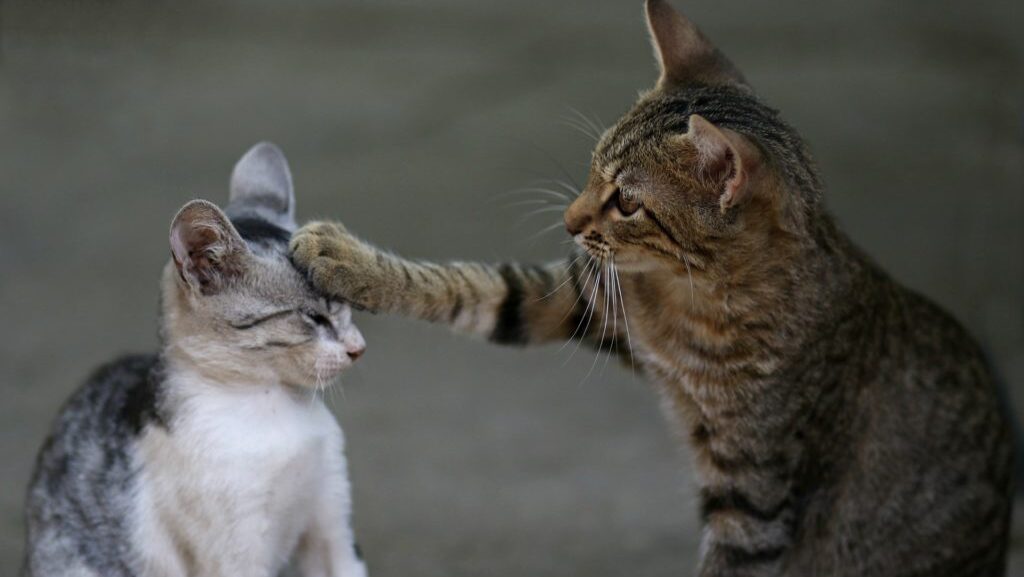The expression “familiarity breeds contempt” is all too familiar. Yet, as the case with many common sayings, we might benefit from taking a look at whether or not it truly makes sense. When we don’t examine these beliefs they tend to become self-fulfilling prophecies. Ordinarily, the expression “familiarity breeds contempt” refers to what often happens in long-standing relationships and marriages. Regrettably, over time too may relationships begin to see their happiness wither. Yet, the question remains: is it actually familiarity that causes this disappointment?
We might consider whether it’s familiarity that’s the culprit or whether something else is provoking the contempt. At times, familiarity may in fact pave the way for greater intimacy and love. After all, when the relationship begins and we open to emotional intimacy, we set the stage for falling in love. If a soft kiss, an appreciative hug or the simple feeling of being cared for becomes familiar, then familiarity in fact evokes and sustains love. In loving relationships that embrace emotional support and respect, familiarity produces a wonderful life. What we become accustomed to should become the focus of our attention.
In relationships, the problem is not with familiarity, but more about that to which we’re acclimating. For example, disrespectful, dishonoring, and negative energy all too often become familiar territory in relationships. These are the elements that cause contempt. Perhaps we’d be better off saying mediocrity or unhappiness breed contempt.
Interested in bespoke marriage and relationship counseling from Mel Schwartz? Reach out!
At the onset of romantic relationships we seek to become familiar with one another. After all, that’s the only way that we can truly know of each other. If love and intimacy are the goals they can only be achieved through a more intimate knowing of one another. The difficulties that marriages endure are not derived from this intimacy, but are caused by a turning away from each other. When we do so, we begin to take each other for granted. This typically happens after we’ve become comfortable enough and the conquest of love has been achieved. This may signal the beginning of that negative familiarity.
When we honor one another we’re not likely to experience contempt. The disdain comes from not getting our needs met. It originates from a turning away from your partner and a relationship philosophy that more likely resembles a “me first” attitude. Contempt is the emotional reaction to not feeling cared for and perhaps disrespected. When we feel valued by our partners, our relationships are inclined to thrive. At the least, this feeling of being valued tends to limit hostility and scorn. When we devalue our partners, contempt becomes very prevalent.
We must pay close attention to the slide into the devaluing of one another. This pattern becomes cyclical, for as soon as one feels denigrated, it’s likely that they will react negatively and impart the same negativity upon their partner. One solution rests in learning to authentically communicate your feelings rather than acting them out. Tell your partner how you feel, rather than behaving contentiously. “I feel angry and let me explain why” may provide a different response that acting out angrily. Not doing so will assure that the pattern of contempt begins.
More from Mel Schwartz…
Podcast #113: Why Do You Need to Be Right?





Familiarity. To me, this term breeds, well contempt. When a couple marries, all is so brand spanking new. Everyone in a brand new relationship is in awe of each other and they can do no wrong, they are so perfect to and/or for each other. They never think of each other as “human”. However, in time, there comes a fart, a burp or even a subtle pick of the nose…….these types of familiarities come in time and they may or may not be accepted depending on the couple. To some they are disrespectful, disgraceful and a reason to break up. To the more cultured and seasoned, they are accepted. Most couples don’t manage to get to the accepted or “seasoned” part of the relationship, because in general they think the grass is greener and go there……….hence in time, on the other side of the fence, the fart and the burps start……when will they ever learn? When will they ever learn? Young people, relationships, do not have a long term view of what may become of the relationship and if they are willing to accept, and mature enough to know the differences (within reason, of course i.e. abusive), they are willing to live with that person. Isn’t it LOVE that brought them together? Well, if it is love, true love, familiarity will not break them apart. Familiarity = comfortable = cozy = acceptance. Most relationships will not see this mostly because they allow themselves to be fed the misconceptions of the world, of the media. True love will never allow such an intrusion.
Yes..true love should not allow such an intrusion. But regrettably true love often falters and defers to insecurity, fear and old wounds..And this is both sad and more importantly can be overcome
I suppose it is human nature………and yes, love will falter, however, I believe in time with experience, etc. one would know to recognize the whole meaning of a relationship. We do not recognize this when we are younger, but only as we are older and wiser we realize what is important and what isn’t. Most, if not all, people will realize at a certain age in time what is important. It’s when we are young we do not know the difference.
Thank you for explaining why “familiarity breeds contempt.” After 40 years of marriage, i couldn’t understand it. I kept thinking, why doesn’t it breed more love, tenderness, understanding, and patience?
But now, after reading this article, it makes sense to me now. Its not familiarity of love and time spent together, but a negative familiarity, because of selfishness(me 1st), and disrespect that causes the turning away from each other, resulting in anger, and bitterness, and separation.
So, I’ll say THANK YOU again for the wisdom in your article. I understand what I need to do to turn this around before its too late!!
That’s great. If you’d like to write me at Mel@Mel Schwartz.com I can offer you some more insights.